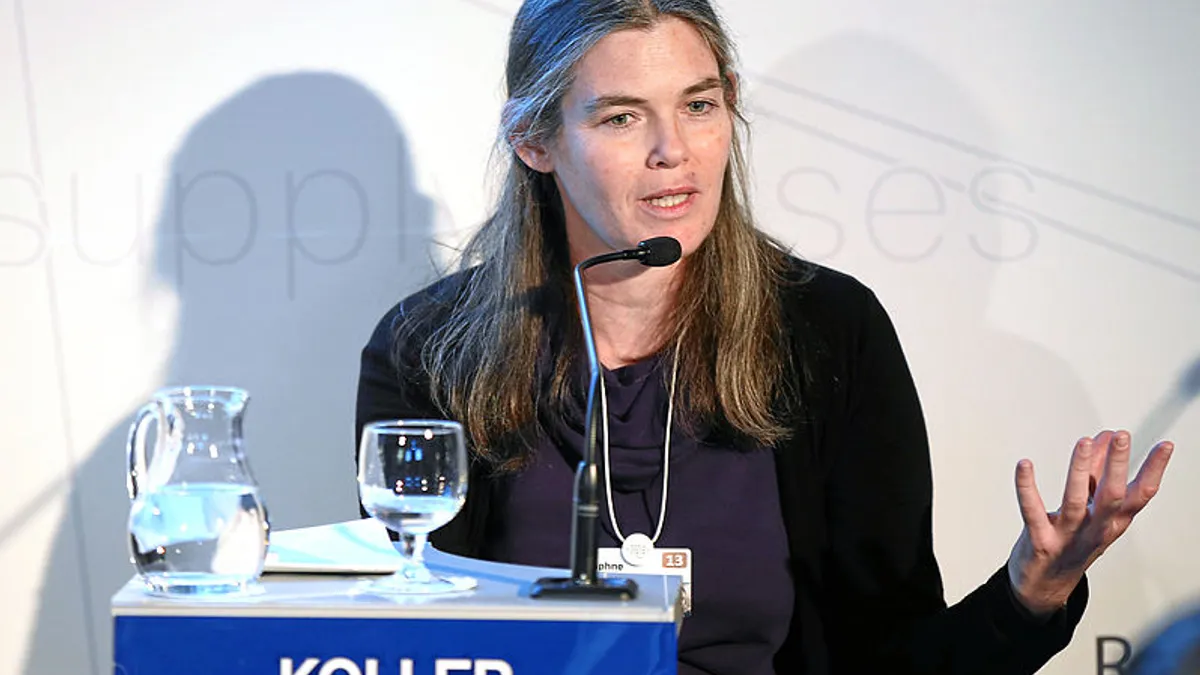Dive Brief:
- Coursera co-founder Daphne Koller argues that online courses are more effective for teaching basic skills but expects traditional classroom experiences to hold their prestige and social benefits.
- In a conversation about the future of education with the Wall Street Journal, Koller advocated a blended model in which core content is learned online and classroom time is used for more interactive assignments.
- With Coursera, Koller plans to expand international enrollment with courses in languages other than English, and she’s gearing up for the first online MBA program at the University of Illinois, according to the article.
Dive Insight:
Koller co-founded Coursera in 2011 with fellow Stanford professor Andrew Ng. Coursera hosts massive open online courses designed and offered by universities around the world, including elite institutions like Stanford, Yale, and Princeton. A handful of the MOOCs have been approved for course credit by the American Council on Education. The courses are free unless people want a certificate of completion, for which they must pay a minimal fee. The fee covers proctored final exams and provides some profit split between universities and Coursera.













